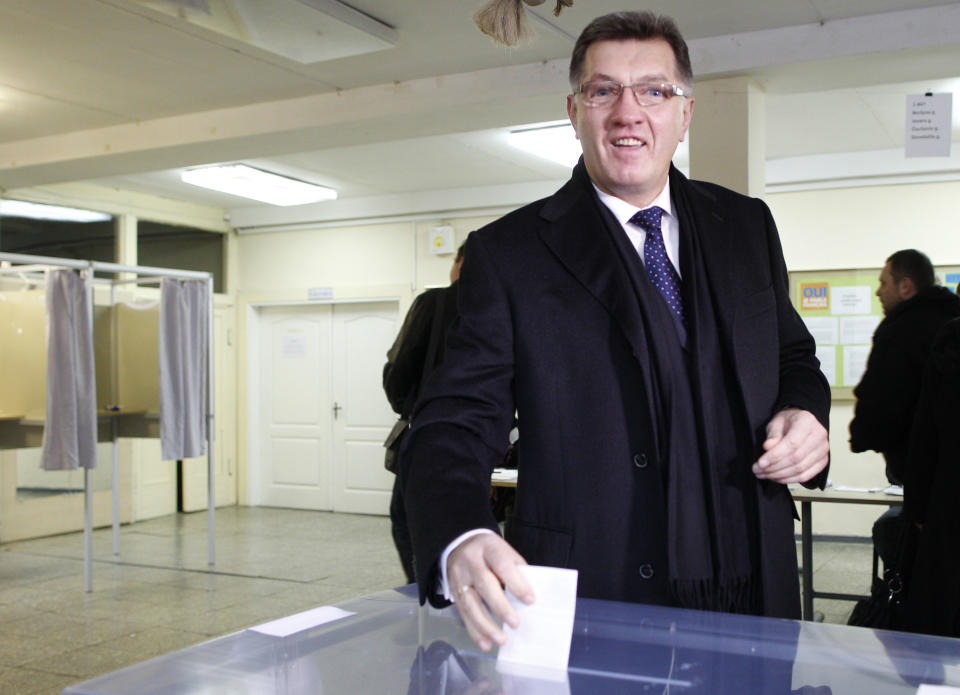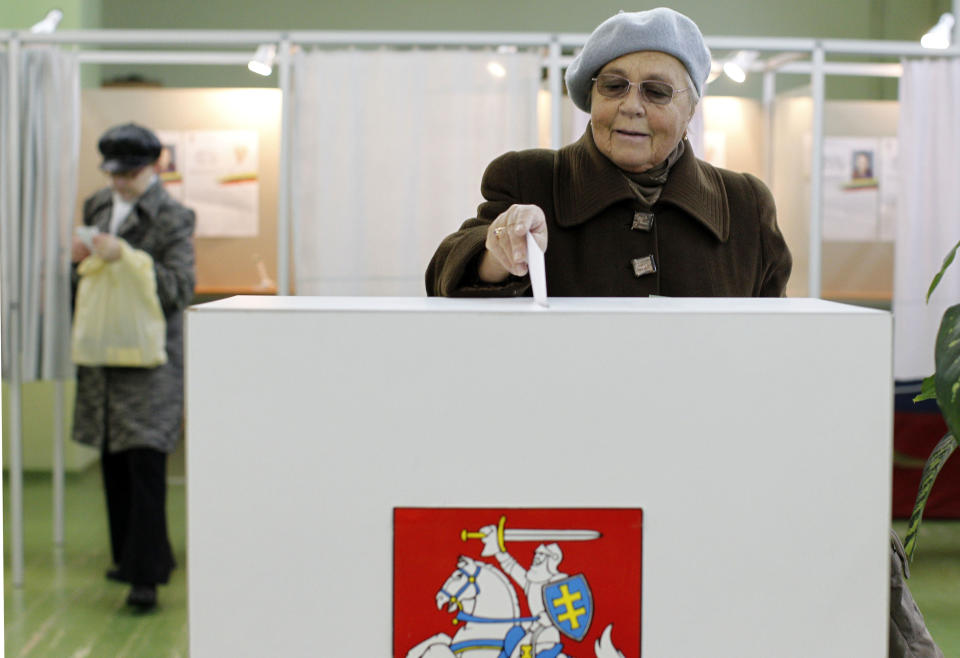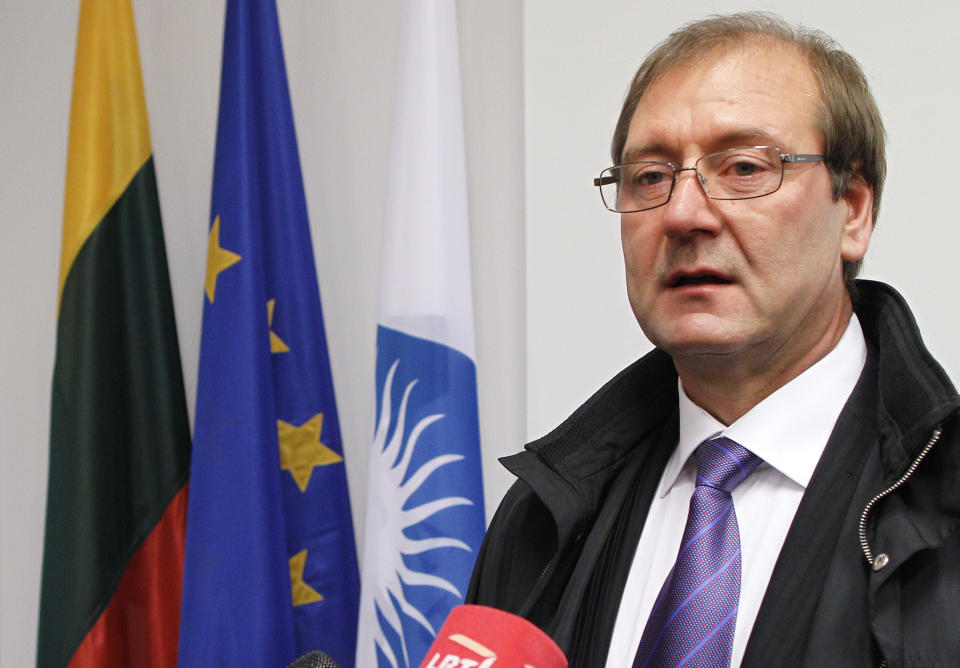Lithuanian opposition party on course to win vote
VILNIUS, Lithuania (AP) — A center-left opposition party that campaigned on promises to end budget cuts and increase social spending has won Lithuania's parliamentary election, according to a near complete vote count late Sunday, marking a defeat of four years of unpopular austerity measures.
The Social Democrats, which governed from 2001-2008, vowed to form a coalition government that would end current austerity policies. They also promised to spend more to boost living standards in the small East European nation, which in 2009-10 saw one of Europe's worst recessions.
"I think (the next government) will be center-left," Social Democratic leader Algirdas Butkevicius told reporters after casting his ballot. "More funds should be given to sectors that stimulate production," he added, pointing out that living standards in Lithuania were declining vis-a-vis those in neighboring Poland and Latvia.
According to unofficial results, the Social Democrats mustered in the region of 38 seats, while probable partners — the Labor Party and Order & Justice — finished with 30 and 11 seats, respectively.
The three parties, which would control approximately 79 seats in the Baltic state's 141-seat Parliament, vowed to form a coalition after the first round of voting two weeks ago.
Meanwhile, the current ruling party, the conservative Homeland Union-Christian Democrats, which is led by Prime Minister Andrius Kubilius, finished second with 32 seats.
Kubilius' government began in 2008 at the start of Europe's financial crisis and was the first in Lithuania to complete an entire four-year term since the nation became independent of the Soviet Union in 1991.
The government has won praise for averting bankruptcy and returning the economy to growth, but critics have slammed it for declining living standards and outward migration — a problem highlighted by a recent census showing that the country's population fell below the 3 million threshold earlier this year.
Kubilius has vowed to introduce the euro in 2014, something that Butkevicius, a former finance minister, has said he would postpone until the European Union could sort out the three-year-old financial crisis.
The final decision on who should become the next prime minister will be made by President Dalia Grybauskaite.




